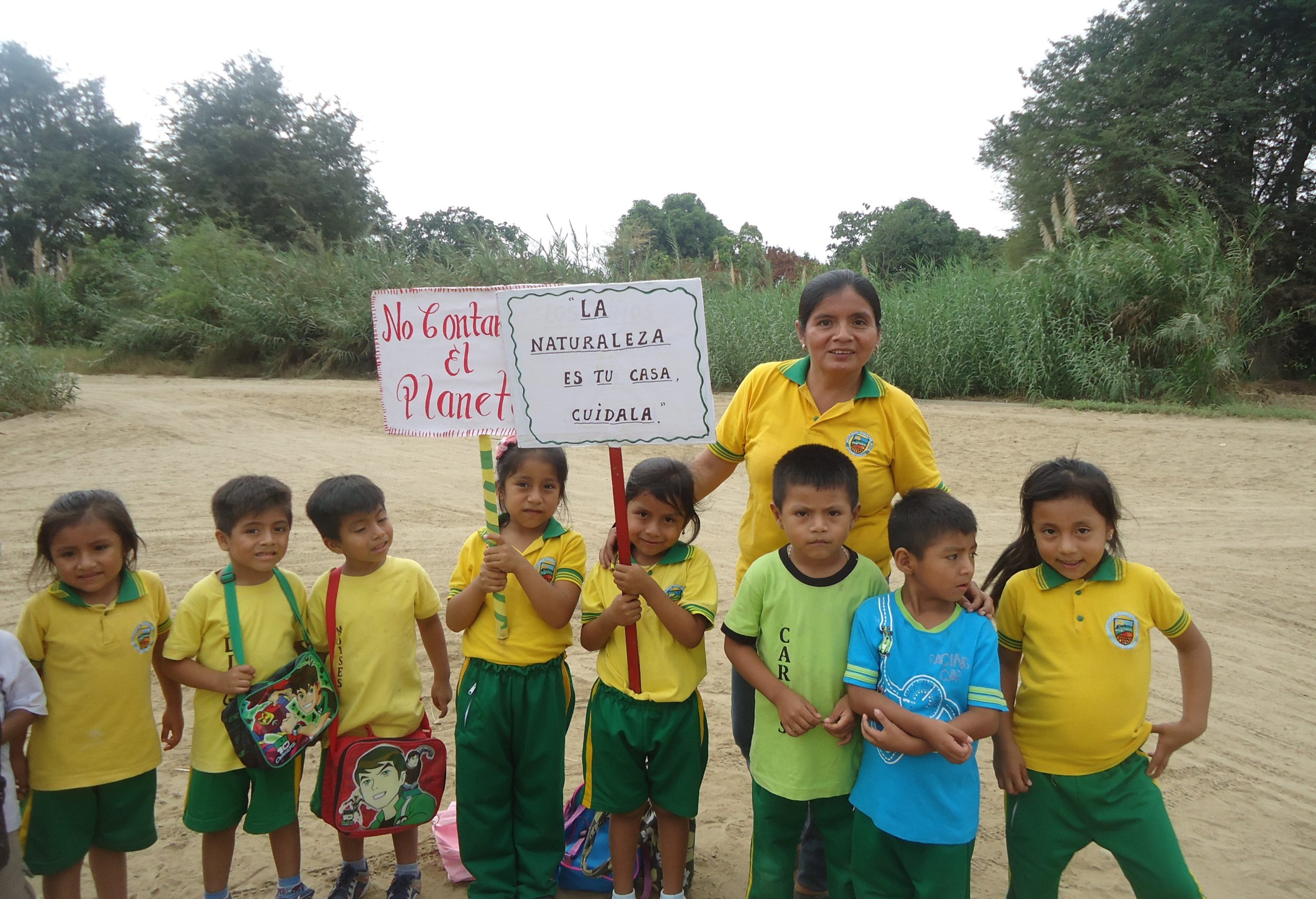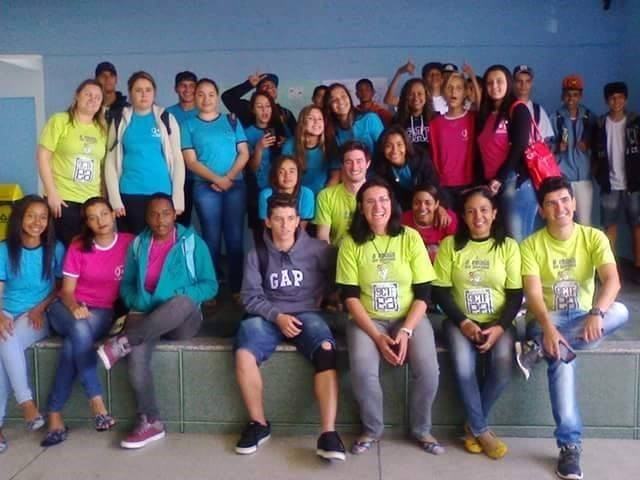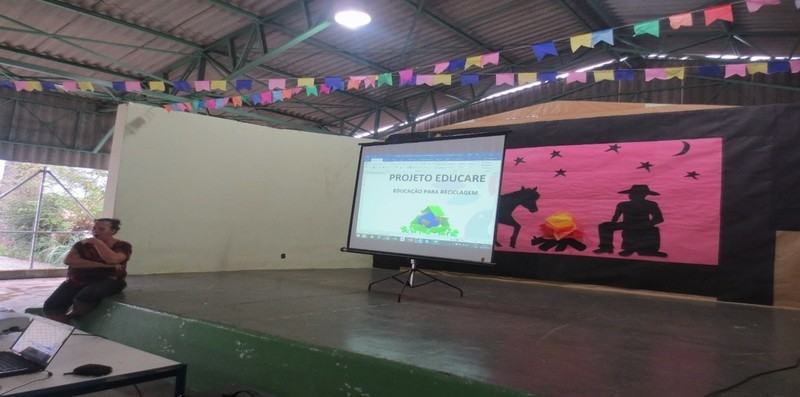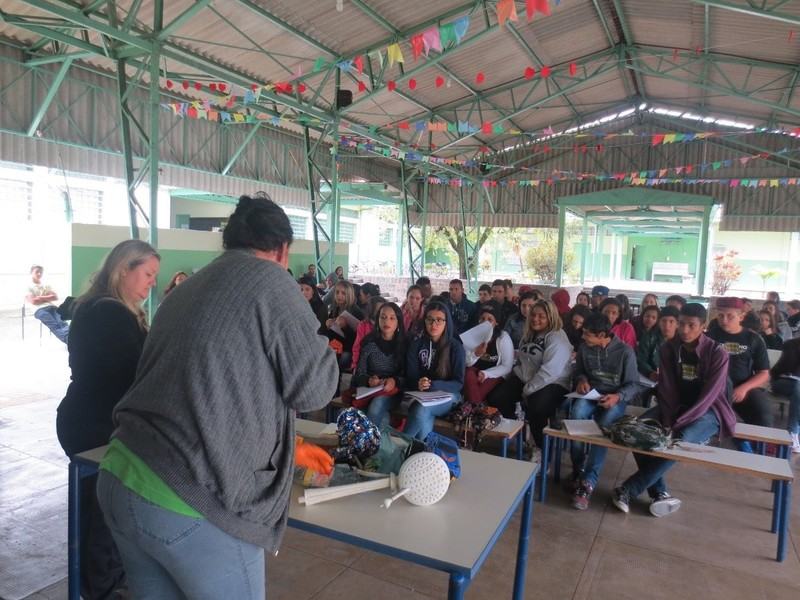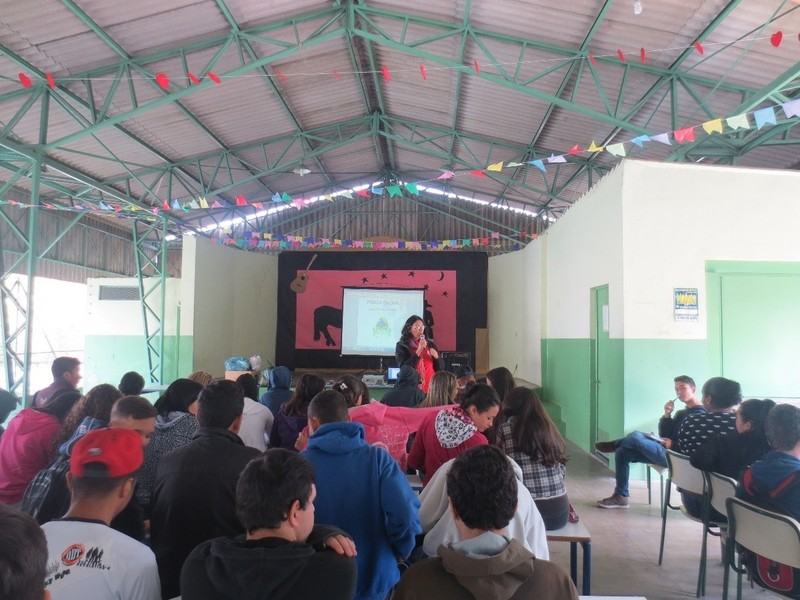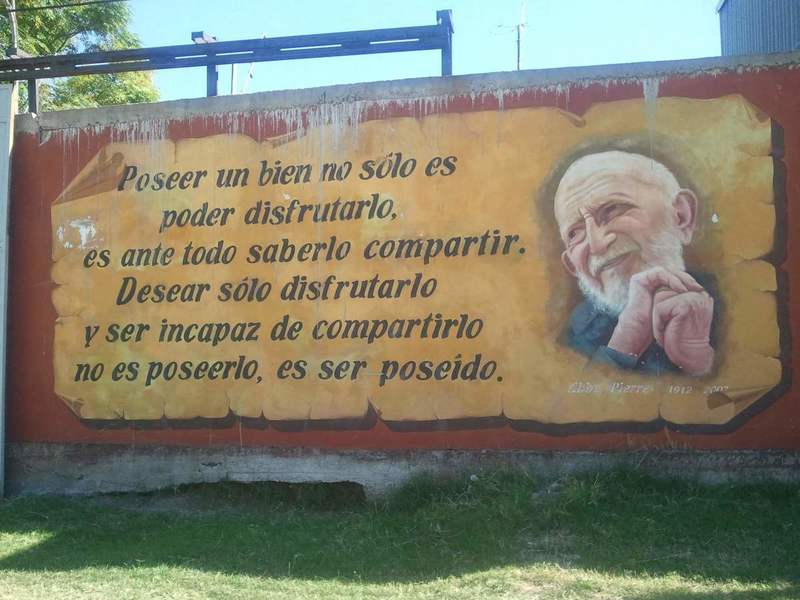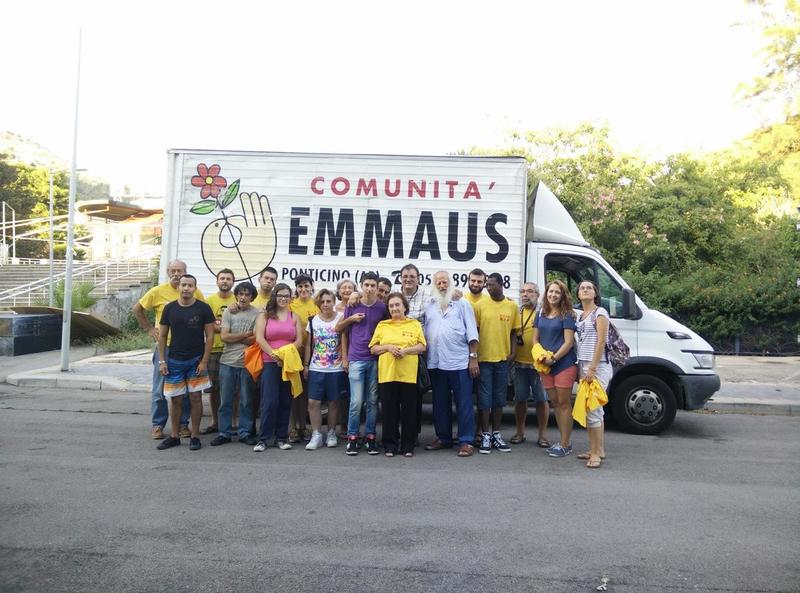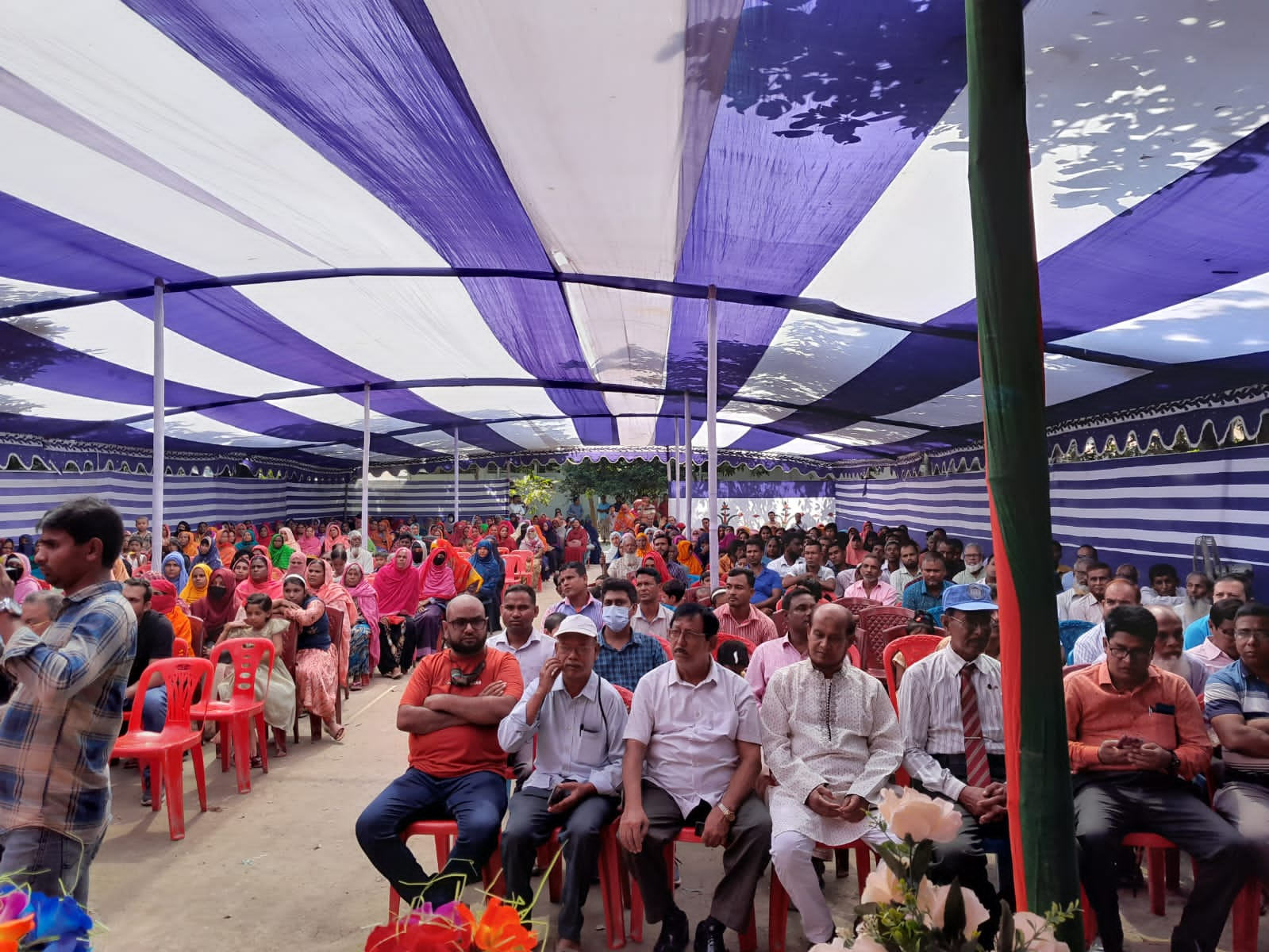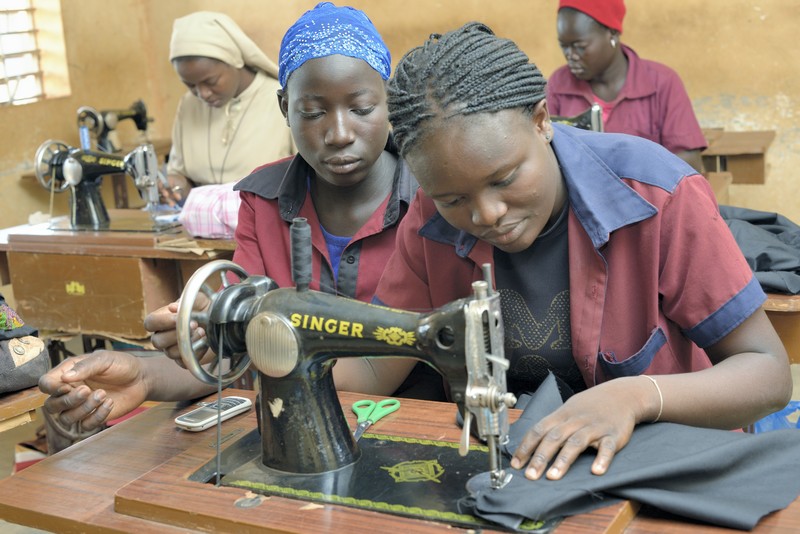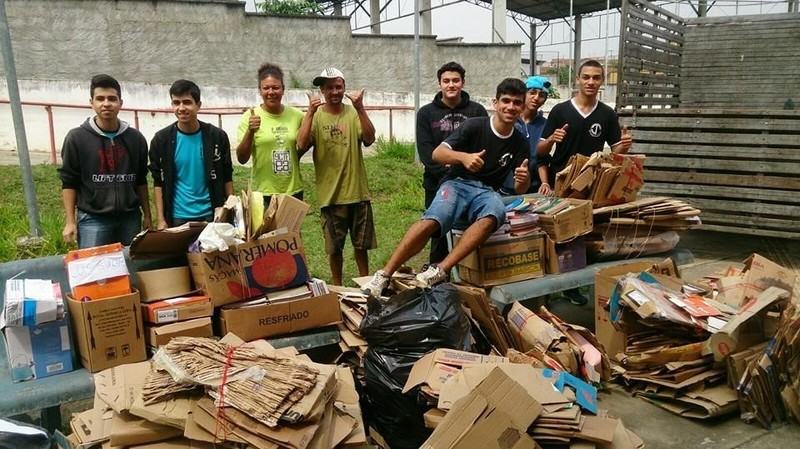
Cachoeira Paulista - État de São Paulo – Brazil
Teaching about Recycling
THE CONTEXT OF YOUR INITIATIVE
“Targeting the struggle for social and environmental justice the Emmaus Igualdade community created a project called ‘Educare – Teaching about Recycling’. The objective of this project is to inform people about Emmaus’ work in schools across the globe, and in Cachoeira Paulista in particular, in order to change mindsets, make the local people aware of the importance of recycling and to motivate them to become activists for change”.
One of the main reasons behind the creation of this project was to answer the question: what will the future of Emmaus Igualdade be after 30 years of work in Cachoeira Paulista? This project was thus seen as an alternative that would guarantee the future of the Emmaus community, a group which welcomes people living on the streets and provides them with dignity as well as social, psychological and spiritual support. However it is the community’s re-use of recycled materials which creates the resources necessary for its survival. Whilst trying to leave the local people with a long-lasting impression Emmaus Igualdade also seeks to raise awareness amongst young people, encouraging them to take part in this process, to seek social and environmental justice and to pass this bug on to their friends. The community welcomes direct support from young people as volunteers as well as support on a more intermittent basis.
In line with Emmaus’ slogan to “serve first those who suffer most” this project informs young people, in a school setting, about the work done by the Emmaus community and promotes collective action. The idea is that, through education, everybody understands that both citizens and materials must go through a continuous process of recycling.
The goal of the school is that people learn about the work done in the Emmaus community and that teachers and pupils develop a project for socio-environmental education.
THE ACTIVITIES CARRIED OUT AS PART OF YOUR INITIATIVE
“The Educare project team goes into schools to give presentations about Emmaus and what Emmaus is. The community also hosts pupils from both public and private schools, helping them to get to know the work led with homeless people and using recycled materials.”
The participation of pupils and teachers is key throughout all the stages of the project and given that the Educare project is part of the Emmaus community we must do all we can to meet the requests made of us by the schools.
For the Educare project the following activities are carried out:
• doing presentations, carrying out technical visits, giving speeches about recycling, education and other socio-environmental problems as well as working with public and private schools to lead projects
• explaining what an Emmaus community is, what Emmaus does across the globe, in Brazil and Emmaus Igualdade’s work in Cachoeira Paulista
• explaining about drug problem which destroys families and individual human beings
• highlighting the social, psychological and spiritual support provided to people to help them regain their dignity
• presenting the current global concerns about environmental matters, in line with the topic of the 2016 Ecumenical Brotherhood Campaign
• showing the importance of the sorting and collecting of materials, how Emmaus uses these materials and how we could all apply these practices in our lives
• proposing guidelines to the teachers so that they lead projects to encourage pro-environment behaviour
• preparing and presenting our stands for visits (the carpentry workshop, IT material, bazar, press and sales of recyclable products, etc.)
For the school:
• understanding the work led by the Emmaus community
• involving the general public in the work done on these topics and theoretical and practical lessons about environmental matters
• drawing up a schedule with the Educare team
WHO IS INVOLVED FROM OUR GROUP?
2 people from management/volunteers: Maurielle and Tânia.
2 employees: Mônica (coordinator) and Márcia (social worker)
2-3 companions who participate from time to time by sharing their experiences
When the companions welcome visitors they show them their work
During the process:
1 Educare project manager
1 person from Emmaus
1 instructor during the visit to Emmaus
1 teacher, possibly more
1 class (30-40 pupils), possibly more
WHICH PARTNERS ARE YOU WORKING WITH ON THIS INITIATIVE?
Photos
FUTURE PROSPECTS
“Thanks to the Educare project families from the local area are able to better understand what Emmaus is all about because the children go home and show their parents the work they have done with the community and at school. We think that many of them have made small changes to their daily behaviour, for example by improving how they sort waste, by prioritising recycling or by purchasing products sold at bazars. They have understood that everyone benefits from these types of processes – the people that have donated objects benefit as they have done something positive and avoided throwing away these materials; the buyer benefits as the cost is much lower; the community benefits as thanks to these sales they have the resources they need to survive and to help homeless people in the community, notably by providing housing.”
All can benefit from this project:
the Emmaus community benefits by presenting its site and its work led with people and using materials, thus allowing it be better known, respected and supported; the school benefits because they learn about a project in their local area which cares about socio-environmental concerns, which puts in place guidelines outlined in research and which protects both the planet and society.
WOULD YOU LIKE TO ADD ANY INFORMATION ABOUT YOUR INITIATIVE?
WHAT ARE YOUR PROSPECTS?
We must prepare a schedule for the year so that the schools commit and organise continued work on this project alongside the Emmaus community.
We must create communication materials about our proposals and our successes that is accessible to all.
It is important to adapt our presentations to different audiences:
– nursery school children
– primary school children
– secondary school children
– students in higher education
Widening the volunteer programme
Latest news
